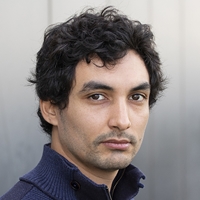Karamfil Todorov
Phd in finance, london school of economics and political science.
I obtained my PhD in Finance from the London School of Economics in 2020 and joined the Bank for International Settlements as an Economist. I work in Empirical Asset Pricing, Institutional Investors with focus on ETFs, Macro-Finance, and Fixed Income. My research has been published in top finance journals like the Journal of Financial Economics and featured in interviews and articles in the financial press including The Wall Street Journal, Financial Times, and Bloomberg.

This paper studies the impact of the ECB's Corporate Sector Purchase Programme (CSPP) announcement on prices, liquidity and debt issuance in the European corporate bond market using a dataset on bond transactions from Euroclear. I find that the QE programme increased prices and liquidity of bonds eligible to be purchased substantially. Bond yields dropped on average by 30 bps (8%) after the CSPP announcement. Tri-party repo turnover rose by 8.15 million USD (29%), and bilateral turnover went up by 7.05 million USD (72%). Bid-ask spreads also showed significant liquidity improvement in eligible bonds. QE was successful in boosting corporate debt issuance. Firms issued 2.19 billion EUR (25%) more in QE-eligible debt after the CSPP announcement, compared to other types of debt. Surprisingly, corporates used the attracted funds mostly to increase dividends. These effects were more pronounced for longer-maturity, lower-rated bonds, and for more credit-constrained, lower-rated firms.
This paper studies ETF price impact in the most ETF-dominated asset classes: volatility (VIX) and commodities. I propose a new way to measure ETF-related price distortions based on the specifics of futures contracts. This allows me to isolate a component in VIX futures prices that is strongly related to the rebalancing of ETFs. I derive a novel decomposition of ETF trading demand into leverage rebalancing, calendar rebalancing, and flow rebalancing, and show that trading against ETFs is risky. Leverage rebalancing has the largest effects on the ETF-related price component. This rebalancing amplifies price changes and exposes ETF counterparties to variance.
We develop a novel methodology to measure the risk premium of higher-order cumulants (closely related to the moments of a distribution) based on leveraged ETFs. We show that the risk premium on these ETFs reflects the difference between physical and risk-neutral cumulants, which we call the cumulant risk premium (CRP). We show that the CRP is different from zero across asset classes (equities, bonds, commodities, currencies, and volatility) and is large in times of stress. We illustrate that highly leveraged strategies are extremely exposed to higher-order cumulants. Our results have implications for hedge funds, factor models, momentum strategies, and options.
Using a unique transaction-level data, we document that only 60% of bilateral repos held by UK banks are backed by high quality collateral. Banks intermediate repo liquidity among different counterparties and use CCPs to reallocate high-quality collaterals among themselves. Furthermore, maturity, collateral rating and asset liquidity have important effects on repo liquidity via haircuts. Counterparty types also matter: non-hedge funds, large borrowers, and borrowers with repeated bilateral relationships receive lower (or zero) haircuts. The evidence supports an adverse selection explanation of haircuts, but does not find significant roles for mechanisms related to lenders’ liquidity position or default probabilities.
We document that the carry of crypto futures, i.e. the difference between futures and spot prices, can become very large (up to 60% p.a.) and varies strongly over time. This behavior is most consistent with the existence of a highly volatile crypto convenience yield that stems from two main forces: (i) trend-chasing and attention by smaller investors seeking leveraged upside exposure to crypto assets in boom periods, and (ii) the relative scarcity of "arbitrage" capital taking the other side through a cash and carry position. Engaging in the latter is risky due to spikes in margins and liquidations amid drawdowns. The interplay between these two forces, and the involved high leverage, may help explain why severe market crashes are a frequent feature of crypto markets.
Can ETFs trigger fire sales in illiquid assets? We develop and empirically examine a model where an authorized participant (AP) holds bond inventory and connects the ETF to the underlying bond market. For redemptions, the AP acts as a buffer between the two markets, holding redeemed bonds to preserve the mark-to-market value of her inventory and avoid a fire sale. The AP behaves asymmetrically for creation and transmits ETF purchases to the bond market to boost mark-to-market values. The AP’s costs of handling creations/redemptions are paid by liquidity-demanding ETF investors via premiums/discounts. We document new empirical facts motivated by the model, and provide a novel explanation for why ETFs holding more liquid bonds traded at larger discounts than those holding illiquid bonds during the COVID-induced sell-off in March 2020. Our findings show that ETFs have advantages over mutual funds in managing illiquid assets.
This paper explores the variance risk premium in option returns across twenty different futures, including equities, bonds, currencies, and commodities (energy, metals, and grains). We implement a novel model-free methodology that constructs tradable option portfolios, which replicate realized variance. In the period 2006-2020, most assets had significant variance risk premiums, but the realized S&P 500 variance risk premium was not significantly different from zero. Within a particular asset, option prices across different strikes are related to the level of volatility and the correlation of volatility with futures returns. Returns to variance are not associated with systematic risk, but are related to fat tails, consistent with option dealers demanding a premium for holding idiosyncratic volatility risk. Contrary to Bollerslev et al. (2009), we find that option-implied variance does not positively predict underlying futures returns for the majority of assets. However, implied variance does predict returns to variance-sensitive option portfolios.
We find that clients with stronger past trading relationships with a dealer receive consistently better prices in corporate bond trading. The top 1% of relationship clients enjoy transaction costs that are 51% lower than those of the median client—an effect which was particularly beneficial when transaction costs spiked during the COVID-19 turmoil. We find clients’ liquidity provision to be a key motive why dealers grant relationship discounts: clients to whom balance-sheet constrained dealers can turn as a source of liquidity are rewarded with relationship discounts. Another important motive for dealers to give discounts to relationship clients is because these clients generate the bulk of dealers’ profits. Finally, we find no evidence that extraction of information from clients’ order flow is related to relationship discounts.
Exchange-traded funds (ETFs) allow a wide range of investors to gain exposure to a variety of asset classes. They rely on authorised participants (APs) to perform arbitrage, ie align ETFs' share prices with the value of the underlying asset holdings. For bond ETFs, prominent albeit understudied features of the arbitrage mechanism are systematic differences between the baskets of bonds used to create and redeem ETF shares, and a low overlap between these baskets and actual asset holdings. These features could reflect the illiquid nature of bond trading, ETFs' portfolio management and APs' incentives. The decoupling of baskets from holdings weakens arbitrage forces but allows ETFs to absorb shocks on the bond market.
The first US bitcoin (BTC) exchange-traded fund (ETF), "BITO", started trading on 19 October 2021. The fund debuted as one of the most heavily traded ETFs in market history, attracting more than $1 billion in assets in the first few days. Subsequently, the ETF accumulated a significant share of all short-term bitcoin futures contracts, reaching about one third of the underlying futures market just 10 days after its launch (Graph A, first panel). This box explains how the futures-based structure of BITO differs from that of more traditional, non-futures-based equity ETFs and analyses the possible implications for prices and risks.
The transition from Libor to "nearly risk-free" rates (RFRs) has led to structural changes that have reshaped the trading and hedging behaviour of participants in fixed income markets. Using the BIS Triennial Survey statistics, we document four major changes in the instrument mix and geographical distribution of the global turnover of OTC interest rate derivatives between 2019 and 2022. First, forward rate agreements (FRAs) became largely obsolete because of reduced fixing risk. This led to a decline in FRA trading, which dragged down overall turnover. Second, trading in swaps referencing RFRs increased. Third, the UK and US shares in global turnover dropped, whereas the share of the euro area rose. Finally, new instruments emerged to manage morphing basis risks in the post-Libor world.
The compression of equity market volatility (VIX) throughout most of 2023 seems puzzling. Some observers relate the drop in VIX to the recent rise of trading in short-term options on the S&P 500 index that expire on the day of trading (zero-days-to-expiry or 0DTE). In this box, we show that the increased trading in 0DTEs in the past few years did not, on net, lure activity away from one-month options and thus is unlikely to be the main explanation behind the drop in VIX. We then propose an alternative explanation: option dealers effectively dampen volatility when they hedge structured products, which have become more popular recently.
The past decade's low rate environment challenged traditional life insurers' business models and has been a catalyst for ongoing shifts in the sector. To sustain profitability, life insurers have increased exposures to riskier and less liquid asset classes. Some have also offloaded risks through complex reinsurance agreements, often to offshore centres, partly with an eye to economising on capital. Private equity firms have been a driving force behind these trends. They have funnelled investment into private markets by acquiring or partnering with life insurers or assuming insurance portfolios through affiliated reinsurers. While more diversified investments and greater risk-sharing can, in principle, support insurers' resilience, losses in private markets could propagate risks across an increasingly interconnected and complex insurance landscape.
In this paper we analyze the trading of different players in the Bitcoin market. We identify large exchanges, miners, and other major market participants, and document key patterns of flows between them.
- FM213: Principles of Finance (advanced) Teaching evaluations
- FM212: Principles of Finance Teaching evaluations
- FM408: Financial Engineering Teaching evaluations
- FM436: Financial Economics Teaching evaluations - Group 2 --> --> Teaching evaluations
- FM458: Probability and Stochastic Calculus Teaching evaluations
- FM225: Fixed Income Securities, Debt Markets and the Macro Economy
- FM250: Finance
- FM230: Alternative investments
- FM360: Options, futures and other financial derivatives
Each report contains three sections of information, and an averaged Profile line. Only Section 1 "Class/Seminar Teacher Evaluation" is about my class teaching in the particular course. Section 2 "Course Evaluation" is about the course itself, Section 3 gives information about the students who responded. Most questions in Sections 1 and 2 are rated on a scale of 1-5, with 1 being very good and 5 being very bad before 2018.
Note: after 2018, the scale has changed to the opposite: 5 is very good, and 1 is very bad.
Browser does not support script.
- My Skills and Opportunities
- Key information
- Student Services Centre
- You've got this
- LSE Volunteer Centre
- Digital Skills Lab
- Student Wellbeing Service
- Student Voice
- PhD Academy
- LSE Careers
- Timetable publication information
- Students living in halls
- Faith Centre

Application process
Applying for a phd, introduction.
Known as a research degree, the PhD is usually a four year (full-time) or five to seven year (part-time) course of independent and original research which is supervised by an academic specialist in the subject area.
You will contribute new research in the form of a thesis suitable for publication which is usually around 100,000 words. It is examined by two examiners, one internal and one external who read your work and then ask you to defend it in an oral exam, the viva voce.
PhDs are traditionally research based, although the integrated PhDs, also known as New Route PhDs, combine research with more vocational training. Increasingly taught courses are compulsory in the first year.
Professional doctorates are useful for students interested in careers outside academia and consist of a taught core and incorporate both professional practice and academic knowledge. They are available in education (EdD), engineering (EngD or DEng) and business (DBA).
Why do a PhD?
People complete PhDs for a variety of reasons:
love of a particular part of their subject
springboard into a new career
access to excellent resources/training useful for non-academic careers
as a pre-requisite for academic careers.
As well as planning then conducting research and writing the thesis, PhD students will often teach undergraduate or master’s students, support more senior academics in their research work, publish articles, attend and present at conferences, work with business or other organisations to explore the value of their research in other fields outside academia (impact), collaborate with organisations or individuals (knowledge exchange) and contribute to their field in voluntary capacity (for example, as a reviewer, event organiser, network co-ordinator).
When can I do a PhD?
You can do a PhD if you have at least an Upper Second relevant first degree or a relevant master’s. You must have in-depth knowledge of your subject area and be able to present a comprehensive research proposal. Some people start the PhD straight after completing a master’s, other people work outside academia for a few years and then apply for the PhD.
Before starting a PhD you could apply for a job as a graduate research assistant where you would support the research of an academic in your department, teach, take part in laboratory work and complete your own research. You could also consider completing a PhD part-time whilst in a job.
Researching into PhDs
Choosing the right programme takes time and research. It is important to apply to departments that specialise in your topic. Check the research quality assessed in the Research Excellence Framework (REF 2014) and also the quality of the teaching in the department via the Teaching Excellence Framework (TEF) ratings.
Talk to people who know the field about where they recommend is a good place to study.
You can apply in one of two ways. You create the topic yourself, pitch it at your preferred institution in a Research Proposal and hope to gain funding via the institution. Alternatively, you can apply to work on a topic which has been agreed between a funding council and an institution and then advertised as a PhD position. If you are accepted funding will be assured.
We recommend you take time to:
ask for help from a current or recent academic tutor
think about the people whose work you like, or who you read regularly, look at their department
speak to the PhD administrator in departments that you think interest you
use information on Find a PhD
book on to a LSE Careers further study event
talk through your options with a careers consultant
use the LSE Careers blog , So you’re thinking about a PhD? 5 tips for prospective PhDs .
Making an application
Read the LSE guidance on applying for a PhD .
You will need to write a research proposal, personal statement and have a CV.
The referees you choose are important as they will write about your academic achievements and potential. Get in touch with them early and ask for their advice too.
Search programmes with spaces at LSE .
Useful publications in the LSE Careers physical library
Your PhD Companion, Stephen Marshall and Nick Green, 2004.
The PhD Application Handbook, Peter Bentley, 2006.
How To Get a PhD: third edition, Estelle Phillips and Derek Pugh, 2001.
Useful online information
Prospects.ac.uk: postgraduate study and research .
Find a PhD .
The Fulbright Commission for applications and funding in the USA.
Related pages
Watch our latest session on thinking about doing a phd, explore our further study events, book a one-to-one appointment to discuss your application.
Browser does not support script.
PhD Job Market
- News and event highlights

Our PhD candidates on the job market in 2024/25 are:

Nico Garrido-Sureda
Job market paper: Venture Capital, Entrepreneurship, and Innovation
- LSE profile page
- Personal webpage

Mark Gischer
Job market paper: Firms and Early Inventor Careers - Evidence from Germany

Jiahong Shi
Job market paper: Partisan Bias and Budget Deficit: Evidence from Mutual Funds

Zheyuan Yang
Job market paper: When Bank Data Security Fails
Past job market candidates and placements - find out about our job market candidates from previous academic years.
Placement Officer : Professor Dirk Jenter Placement Administrator : Mary Comben

PhD Finance programme information
Financial markets group.
A world-leading centre for policy research into financial markets
Systemic Risk Centre
Studying the risks that trigger financial crises and exploring policy solutions
PhD job market
View candidates entering the job market this year
Connect with us
Telephone +44 (0)20 7955 7736
General enquiries [email protected]
Address View on Google maps
Department of Finance, Marshall Building, London School of Economics and Political Science, , London WC2A 2AE
- How to recruit?
- Internship calendars
- Post an offer
- How to give
- Ways to give
- 2019-2024 campaign
- News and publications
- Annual Report
- Build your brand
- Work with our students
- Become a partner
- Our corporate partners
The Finance PhD program at HEC Paris provides students with a rigorous training in financial economics delivered in a vibrant research department.

Our stimulating research environment allows PhD students to grow as researchers and to obtain jobs in top academic institutions at the end of the thesis.
In the past few years, graduates from the HEC Paris PhD program have been hired as Assistant Professors at London Business School (see Maxime' s research in corporate finance and asset management), Singapore Management University (see Tianhao' s research in ESG investment, sustainable finance, and asset management), Columbia University (see Noémie's research in government intervention and corporate behavior ), the London School of Economics (see Huan’s research in fintech), Wharton (see Sylvain’s research in household finance), Princeton (see Adrien's research in corporate finance), Harvard Business School (see Boris’ research in financial innovation). See the full academic placement record at the bottom of this page.
Why are HEC Paris PhD graduates so successful on the academic job market?
The first ingredient is the rigorous training. The HEC Paris finance department partners with the economics department at IP Paris to provide students with a solid training in finance + economics + econometrics.
The second ingredient is the excellence of the faculty. Finance professors at HEC Paris publish in top academic finance and economics journals and hold editorial positions in journals such as the Journal of Finance and the Review of Financial Studies.
The third ingredient is the collegiality of the HEC Paris finance group . PhD students have numerous opportunities to interact with faculty and discuss about research. Some of these opportunities happen in organized events: courses, weekly research seminar, pre-seminar workshop, weekly internal seminar, annual PhD workshop, mock job market interviews in the final year of the thesis, and so on (see below for more information on these events).
Research interactions also and perhaps mostly happen informally. If you come to the HEC Paris Finance department, you will find that doors are open and you will probably find professors and students chatting about research at the coffee machine. Students can present their research in the internal research seminar. When faculty or students want to learn about a research field, they set up a reading group inviting interested faculty and students to read papers together and discuss research ideas.
The HEC Paris Finance PhD program is relatively small compared to the size of the faculty. We usually hire two or three PhD students per year and the department has about twenty research faculty. This high faculty-to-student ratio fosters the quality of interactions between student and faculty. Our connections in top universities around the world allow PhD students to spend a semester or a year visiting another university.
Main events
Weekly research seminar: Researchers from other universities present their research. See the schedule . Pre-seminar workshop: Before each research seminar, the PhD students and a different faculty each week meet for a “pre-seminar workshop” to discuss the paper presented at the seminar. It is a great opportunity for students to engage in a discussion about a different research topic every week, to learn from a faculty specialized in this field, and to generate new research ideas.
Weekly internal seminar: A faculty or a PhD student presents preliminary research ideas.
Annual PhD workshop: Every year we invite 30 PhD students from other finance PhD programs in Europe. It is a great opportunity for PhD students to meet with future researchers and colleagues and to create interactions that can generate joint research projects. During this workshop, students from HEC Paris and other schools who are close to completing their PhD present their research in front of the other students and the HEC faculty. Click here
Preparation for the job market: In the final year of the thesis, PhD students apply to academic positions in universities and business schools all over the world. The job market has three main selection stages: based on the research package and recommendation letters in November; interviews in January; seminars and campus visits in January-February. PhD students at HEC Paris are actively prepared for this process. We organize mock interviews and mock job market seminars with the HEC faculty, which allow students to practice in real-life situations.
Selection of past placements
Our complete placement history in Finance can be found here .
• Markus Bak-Hansen, Bank of England , 2024 • Maxime Bonelli, London Business School , 2023 • Tianhao Yao, Singapore Management University , 2023 • Pinardon-Touati Noémie, University of Columbia , 2022 • Pekka Honkanen, Terry College of Business, University of Georgia , 2020 • Huan Tang, London School of Economics , 2020 • Sylvain Catherine, The Wharton School, University of Pennsylvania , 2019 • Thorsten Martin, Bocconi University , 2018 • Jean-David Sigaux, European Central Bank , 2017 • Adrien Matray, Princeton University , 2016 • Olivier Dessaint, Rotman School of Management, University of Toronto , 2015 • Boris Vallée, Harvard Business School, 2015 • Jean-Noël Barrot, Sloan School of Management, Massachusetts Institute of Technology , 2014
Average starting salary: 226 000 USD
PhD Coordinator

Current students Department website Placement
Read on Knowledge@HEC


Could AI Trigger the Next Financial Crisis?
By Thierry Foucault

Reaching for the Stars: High Ratings Give Restaurants an Edge with Customers – and Lenders
By François Derrien

How Investment Capital Could Induce Polluting Companies to Change for Good
By Stefano Lovo, Augustin Landier

What Incites Companies to Invest in Green Technologies?
By Bruno Biais, Augustin Landier

PhD in Finance UK
Phd finance studentships.
We are offering PhD studentships comprising tuition fees and maintenance grants for four years. The deadline for application is 9 February 2024.
Find out more
Key information
About the phd in finance programme.
On the PhD in Finance programme, you have the opportunity to join a thriving and international faculty.
The faculty comprises over 50 scholars conducting state-of-the-art research in all key areas of finance and it is located within the City of London, the world's most prominent financial centre. No other PhD programme in Finance gives you such access to the City of London. The unique and direct access to leading figures from the real world of finance enables us to blend the latest theory and thinking with the latest real-world experience and developments within the PhD in Finance.
Research Excellence Framework (REF) 2021
The Research Excellence Framework (REF) 2021 rated Bayes 5 th in the UK for Business and Management research. In total, 92% of our research was rated as world-leading (4*) or internationally excellent (3*) – up from 84% in REF 2014.
Research Areas
Our research covers all the core areas of finance, including:
- Asset Pricing
- Banking and FinTech
- Commodity, Shipping Finance and Risk Management
- Corporate Finance
- Corporate Governance and ESG
- Finance and the Real Economy
- Financial Econometrics
- International Finance
- Market Microstructure
- Mathematical Finance
As such, our Finance PhD students carry out research in a wide variety of areas and receive feedback from an outstanding array of scholars, all of them at the forefront of the academic debate. The faculty fosters an engaging approach to research where collaborations across areas are encouraged.
We encourage you to learn more about the programme’s faculty or previous students’ achievements by visiting the links below.
We take pride in producing research of the highest academic standard, and our research is published routinely in the top finance journals.
- Faculty members involved in different research areas
- Recent publications from the Faculty of Finance
Programme structure
The Finance PhD is usually a four year programme. You are registered on the MPhil degree for the first two years during which you will follow a programme of taught courses and prepare your first research paper.
Year 1 - Theory and Methods
In the first year you will attend a comprehensive set of courses designed to train you in the theory and methods necessary to conduct high quality finance research. These courses are academically rigorous and you will be examined in each of them. Upon successful completion of all first year courses you will progress to year two.
First term:
- Corporate Finance Theory
- Topics in Finance
Second term:
- Empirical Corporate Finance
- Topics in Banking
Third term:
- Research Project
- Faculty workshop & seminars
Year 2 - Research and Teaching Skills
Your research training continues in this second year with workshops focused on developing specific skills such as academic writing, advanced level reading groups where we delve deeply into key current research papers, and courses introducing you to the practice of learning, teaching and assessment.
Alongside this, you will commence research in your chosen topics and the year culminates with the defense of your first research paper before a transfer panel committee. After the successful defense of your transfer panel paper you will move onto the final two years of the PhD programme.
- Literature reviews
- Reading groups
- Learning, teaching and assessment
- Academic writing
- Advanced seminars
Year 3 - Professional and Career Skills
You complete your remaining research papers in years three and four, and will defend your work in the viva voce exam soon after completion of your thesis. Training continues in the final two years but the focus shifts towards preparing you for an academic career.
You will attend workshops designed to help you to publish your work and to introduce you to the academic job market.
- Reviewing and publishing
- The job market
In the final year we devote a lot of time to both viva and job market preparation with the aim of you successfully defending your thesis and taking up academic positions in leading business schools or universities, or research jobs in policy institutions.
- Career talks
- Job market preparation
- Viva preparation
Fees and Funding
Uk (home) students.
- Full-time: £4,880 per year
Non UK (Overseas) / EU Students
- Full-time: £12,250 per year
Contact us and Find Bayes
Contact details.
Abdul Momin +44 (0)20 7040 8618 [email protected]
Bayes Business School

IMAGES
VIDEO
COMMENTS
A PhD in Finance from LSE consists of six coursework units, completed over two years, followed by a thesis which is usually expected to take a further three or four years. We encourage our research students to participate fully in the intellectual life of the department, and in the research seminar and workshop programmes of the department and ...
Our PhD in Finance is unique in its integration of finance and economics. As one of the largest finance departments in the world, we are able to offer opportunities for research in virtually any field in finance. A PhD in Finance from LSE is highly regarded by employers, and our graduates move on to positions at world-leading institutions.
Currently, there are economics PhD field courses covering: econometrics, international, labour, public, development, industrial, microeconomics, macroeconomics, political economy, and environmental economics. In addition, the LSE offers PhD field courses in Corporate Finance and Asset Pricing.
A PhD at London Business School sets you on the path to an excellent academic career and a faculty position at a world-class business school or university. ... Finance PhD Programme . ... (LSE) and University College of London (UCL).
PhD in Finance, London School of Economics and Political Science ... LSE Finance Summer School FM225: Fixed Income Securities, Debt Markets and the Macro Economy FM250: Finance FM230: Alternative investments FM360: Options, futures and other financial derivatives Contacts and disclaimer Karamfil Todorov PhD in Finance, London School of ...
A global reputation. Outstanding connections to world-leading financial institutions. 20+ full-time finance faculty members. Just three of the reasons why exceptional scholars choose to study for a PhD at London Business School. A global reputation. Outstanding connections to world-leading financial ...
speak to the PhD administrator in departments that you think interest you . use information on Find a PhD. book on to a LSE Careers further study event . talk through your options with a careers consultant . use the LSE Careers blog , So you're thinking about a PhD? 5 tips for prospective PhDs. Making an application
PhD Finance programme information. Featured. ... General enquiries [email protected]. Address View on Google maps. ... Instagram YouTube. London School of Economics and Political Science. Houghton Street. London. WC2A 2AE UK . LSE is a private company limited by guarantee, registration number 70527. +44 (0)20 7405 7686. Campus map.
PhD, Finance, Assistant Professor, LSE (UK) Our stimulating research environment allows PhD students to grow as researchers and to obtain jobs in top academic institutions at the end of the thesis. ... Every year we invite 30 PhD students from other finance PhD programs in Europe. It is a great opportunity for PhD students to meet with future ...
About the PhD in Finance programme. On the PhD in Finance programme, you have the opportunity to join a thriving and international faculty. Benefits. The faculty comprises over 50 scholars conducting state-of-the-art research in all key areas of finance and it is located within the City of London, the world's most prominent financial centre.